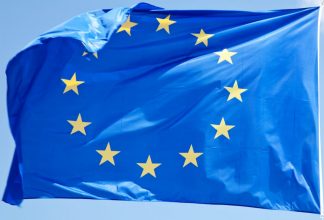Open Letter to the European Union
Letter #30 is an open letter to the European Union written by several Cuban human rights defenders.
In July 2019, Civil Rights Defenders invited Cuban human rights defenders and civil society organisations to contribute with texts on how the European Union should work towards Cuba. This is one of the letters we received.
Open Letter to the European Union
The European democracies thought that the PDCA was a step forward for EU-Cuba relations. And, in fact, it was in the sense that of the 28 countries, those represented in Havana, until that time had had no contact with the Cuban authorities. But, on the other hand, it meant a small injection of oxygen for the depressed economy of the island and the international recognition of the dictatorial government.
However, the approval at the beginning of the year of the new Cuban Constitution must have eliminated the hope that this cooperation would push towards a change in the country. With this, it would remain only for Europeans the possibility of accepting Federica Mogherini’s idea that Cuba is a one-party democracy.
More important is the fact that in the information emanating from the first meeting of the Joint Committee, there was no mention of human rights; although at the moment, with the use of the Internet, there was more than enough evidence of the way in which the rights of the people of Cuba are constantly violated, and how the police mistreats people.
The fact that no European official who visits Cuba meets with dissidents, and that civil society members were not invited to participate in the preparation of the Agreement, and neither the EU nor much less the dictatorship allowed independent journalists to attend press conferences at the end of bilateral meetings, implies that, in order to please the regime, those who have been working on the Agreement have ignored the presence of people who have suffered imprisonment for political reasons – a category that the regime does not acknowledge – and of others who are still in prison.
The Member States of the European Union need to wake up, and stop the support to one of the dictatorships that has damaged the most, and continues to do so -in several countries- with its expansionist policy of making people surrender.
There are currently four EU members who have not ratified the Agreement, so there would be an opportunity for the European Parliament to review it.
While it is true that the geographical proximity, the shared history and the family ties due to the number of Cubans living in the United States of America, make Cuba’s relationship with this country more important than the links it has with the European Union, withdrawing the support that this bloc gives to the dictatorship, in these difficult moments of transition of command, would help the restoration of democracy much more.
Havana, September 4, 2019
Signatories:
Guillermo Fariñas Hernandez
Ivan Hernandez Carrillo
Jorge Bello Dominguez
Jorge Olivera Castillo
Kirenia Yalit Nuñez
Lazara Ayllon Reyes
Martha Beatriz Roque Cabello
Nancy Alfaya Hernandez
Santiago Emilio Marquez Frias
Tania de la Torre Montecino
Yuleidy Lopez Gonzalez

